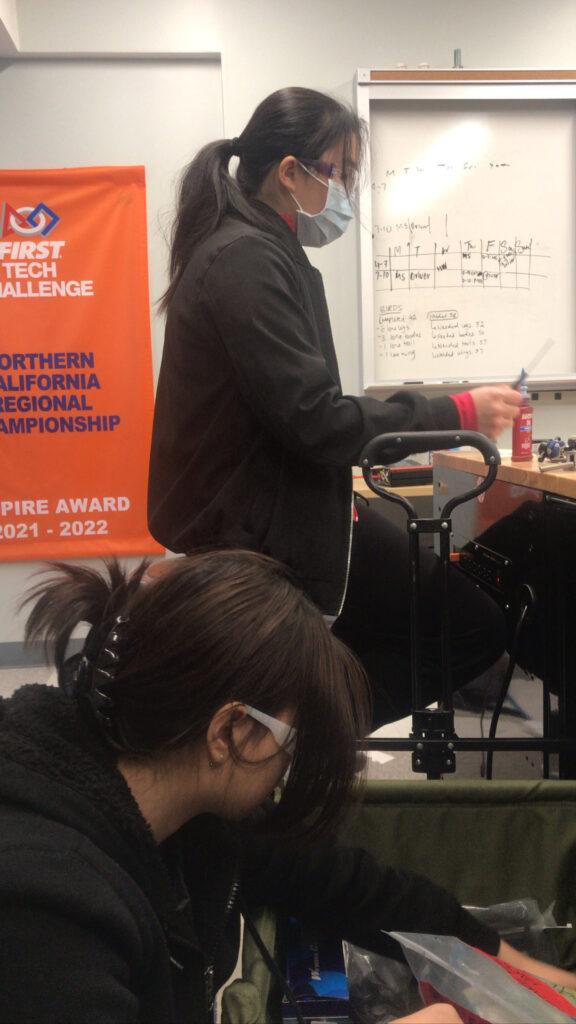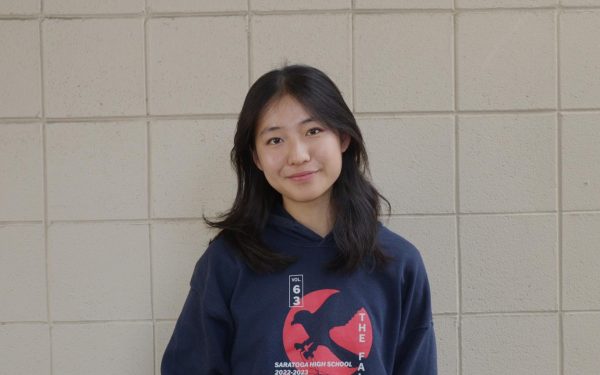“Queuing for match 35, queuing for match 35,” the intercom booms throughout the large gym as First Tech Challenge (FTC) teams run between the fields and the pits (designated places for teams to fix their robots). Since 2012, the MSET Robotics team has hosted an annual FTC qualifier, where around 25 to 30 other teams compete to earn a spot in the World Championship. This year, the tournament expects 28 teams, which means that there will be around 300 to 350 students attending on Dec. 4.
Hosting a competition with so many attendees requires planning several weeks in advance by four organizers: MSET adult mentors Vipin Jain, Sheeba Garg and Keerti Melkote and FIRST liaison Dianne France. Together, they plan the date, organize the venue and arrange for volunteers to perform various jobs at the tournament.
As tournament director, Melkote arranges for around 60 volunteers, the majority of whom are MSET students and parents, to register for important roles like volunteer coordinator, safety inspectors and scorekeepers. Because several crucial volunteer roles require certification training, he ensures that they sign up well in advance, around three weeks before the actual event. For Melkote, the most difficult volunteer roles to fill are judges, who require expertise to interview teams about their robot and their outreach to determine who receives a multitude of different awards.
“The hardest part, actually, is to find unaffiliated (no relation to FIRST participants) judges who can do a reasonable job judging and be present because it is a full-day commitment,” Melkote said.
As for the other volunteer roles, a majority of them are open to any students; however, MSET students are given priority so that they can familiarize themselves with the competition setting. Because their event is relatively early in the season, Melkote strives to plan a successful tournament where teams can evaluate their own performance, and compare it with other teams.
“Saratoga is a prestigious event, even though it’s a qualifier,” Melkote said. “People want to come to compete here because only teams that have accomplished a certain level of robot functionality can participate, so we tend to attract the higher-level teams.”
The day before the event, the fields, pits, projectors and other important infrastructure are set up so the competition can start off without a hitch. However, as matches start after the opening ceremony, the pace of the tournament rapidly increases, along with the importance of attentive volunteers.
“Now that we are queuing, if any one thing is out of whack, then the tournament gets delayed,” Melkote said. “So running a smooth operation that day is going to be the highest priority for me, just to keep it running at a level so it remains a prestigious venue for people to come to.”
Since this is only Melkote’s second year as tournament director, and his first year was during COVID, where only 16 teams were allowed to compete, the additional 12 teams this year are a completely new experience for him. Nevertheless, he aims to direct a fruitful tournament for both teams and volunteers.
“I want to get a really good tournament done to create the right experience for all the participants that come in, so giving [judges and other volunteers] all the support they need during the event is of utmost importance,” Melkote said.




























